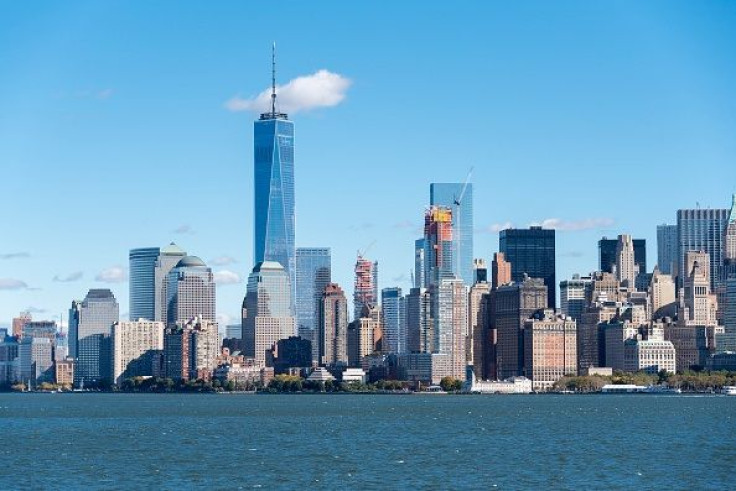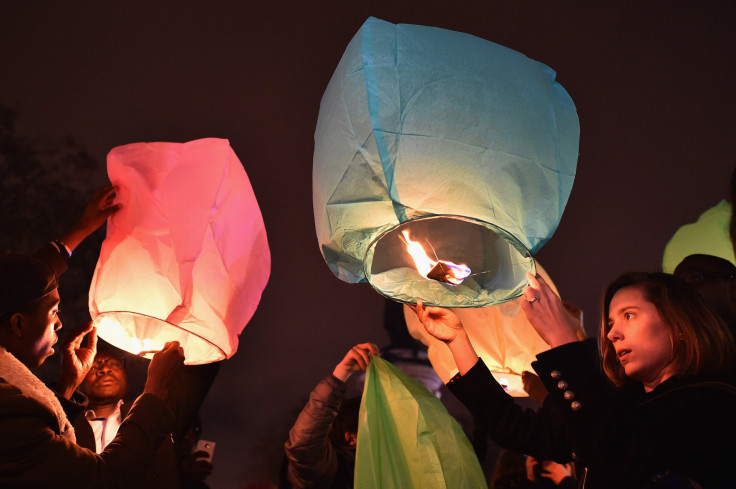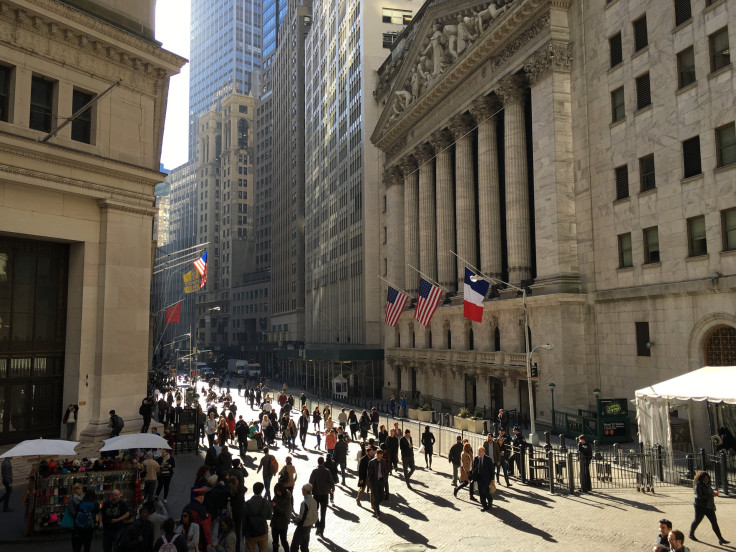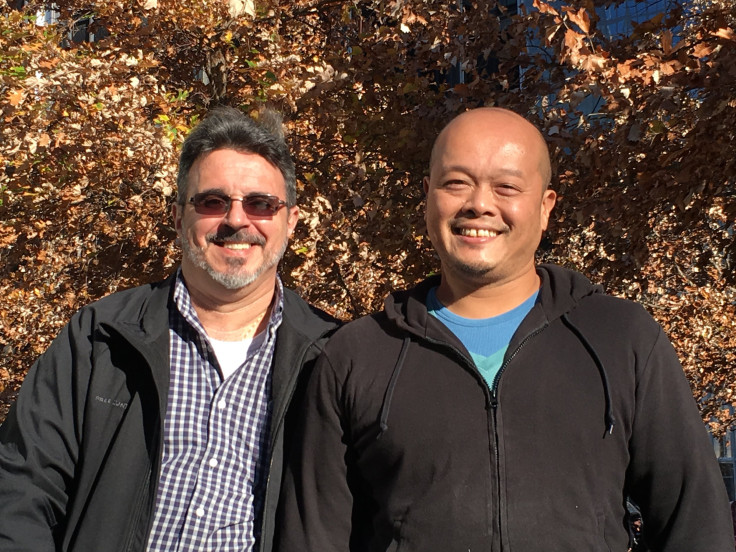Americans Fear ISIS Attack? After Paris Shootings, A Reminder For New Yorkers

Days before the terrorist attacks that killed and wounded hundreds of Parisians, Chris Gerage's wife begged him not to take one particular job in Manhattan. Gerage, a cook at a catering company, had a gig at 4 World Trade Center, overlooking the spot where the Twin Towers stood before hijackers flew planes into them on Sept. 11, 2001, and killed nearly 3,000 people. The location spooked his wife.
“You’re going to cancel it, right?” his wife asked him, Gerage recalled. "No,” he said. The job paid well, and they had bills to pay. She tried again. “Maybe you can cancel this one?” “Nothing’s going to happen,” Gerage, who is 52, reassured his wife.
But as he stood outside 4 World Trade Center Monday afternoon, as the new tower of One World Trade Center loomed overhead and visitors milled about the pools that fill the footprints of the fallen towers, Gerage remembered his wife's pleas after the massacre in Paris Friday night.
“She does worry,” said Gerage, a resident of New York City's Queens borough. He had texted her twice that day before 2 p.m. to tell her he was fine, and he planned to do so again before the evening. Both he and his wife had watched the attacks of 9/11 unfold, she from midtown Manhattan, he from Long Island City in Queens. “You could feel the air, the heat, of that fireball come through the air,” he recalled. It was an experience he never wants to relive.
After the string of deadly terror assaults in Paris on Friday night, the worst attacks on French soil since World War II, Americans were jolted by a fresh sense of vulnerability. According to a poll published Monday and conducted by Reuters/Ipsos over the weekend, 63 percent of Americans fear that an attack like those in Paris could happen near them. In fact, they were more afraid of the possibility than they were immediately after the Boston Marathon bombings of 2013. For some in New York who had endured previous terrorist attacks, like Gerage and his wife, the violence in Paris served as the latest reminder of the need for a heightened awareness.

“I do feel like there’s a big threat, being in New York City, because it’s been targeted before,” Taylor Soma, 19, a student at Pace University who lives in downtown Manhattan, said as she sipped on an iced coffee and sat near the New York Stock Exchange Monday. After the Paris events, she stuck to previously made plans to spend the weekend in the Hamptons, and was glad she did. “I just felt safer out there,” she said.
The Islamic State group, which claimed responsibility for the attacks in Paris, has also said it carried out a slew of other recent attacks outside of the territory it controls in Iraq and Syria. The twin suicide bombings in Beirut Thursday that killed 43 were its work, it has said, as was the crash of a Russian plane over the Sinai Peninsula Oct. 31, in which all 224 people on board were killed.
Now, the group has vowed to do more damage, and authorities from New York to Brussels to Moscow are on the alert. After ISIS released a propaganda video Monday threatening to attack Washington, CIA Director John Brennan warned that the attacks in Paris were not “the only operation that ISIL has in the pipeline.”
But not everyone seems convinced that another attack is imminent – or that even if it is, that they should let their lives be dictated by the possibility.
Nicky Chang, an architect at an office on Wall Street, took her lunch break outside Monday on the steps of the Federal Hall National Memorial near a bronze statue of George Washington. From the New York Stock Exchange building across the way, three flags – two American, one French – fluttered at half-mast.

Chang lived in Paris for a year as a student in 2004 and has visited since then about once a year, she said. The moment she learned of the attacks, she called a friend in Paris who lives on Boulevard Voltaire – the very tree-lined street that is home to the Bataclan, the concert hall where 100 people were murdered Friday – to make sure he was okay.
If there was a watershed moment in the way she thought about her own safety, it was 9/11 and the threats and fears of attacks in the intervening decade and a half, she said. But she had been so busy over the weekend perusing the news, trying to catch every update about the attacks in France, that she was hardly thinking about what could happen in New York.
“My mind goes to what’s going to happen in Paris more than what’s going to happen in New York,” Chang said. “My heart is in Paris.”
Others refused to let any potential threats influence their daily routines. After she heard about the attacks in Paris, Patricia Egan, a 68-year-old retiree from outside Boston, briefly considered canceling her plans to visit New York City Sunday and Monday. “You think about it, but then you realize you’re not safe anywhere,” she said as she rested on a wooden bench in the shade of Trinity Church on Broadway, a crumpled New York City subway map in hand.
Besides, she saw no point in letting the terror group dictate her life. “Do you live in fear?” she asked. “Do you not go out your door?”

Outside the World Trade Center Monday, Tim Mercado, 45, a cook at the same catering company as Chris Gerage, said Paris’ attacks had been a reminder for him. “I have to keep the guard up, the knowledge up,” he said. But he would not entertain even the possibility of living life differently because of attacks or threats from jihadist groups.
“If you live your life in fear,” he said, “they’ve won.”
© Copyright IBTimes 2024. All rights reserved.












